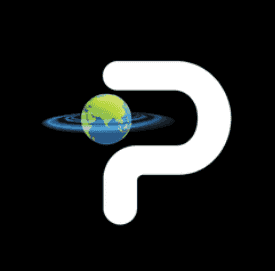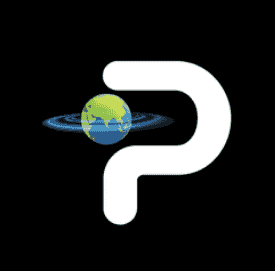It is not about an AI that is not about lightening-fast arithmetic or even solving complex calculus problems. This success becomes very deeper, touching mathematical discovery and very essence of logical logic.
Algorithm Eureka: A milestone unveiled
The specific milestone refers to significant progression by the AI system of Google Deepmind - often embodied in projects of combining large language model (LLM) with special logic engines. A remarkable achievement includes alphageometry, an AI system that solves geometry problems at an Olympiad level. Developed by Deepmind, it scored comparable results for human gold medalist in the International Mathematical Olympiad (IMO) by combining a symbolic cut engine with a large language model for the insight generation.
This is just more than pattern recognition; It is about the creation of elegant evidences, discovering novel relations and dealing with problems that demand intuition, creativity and multi-step logical estimates-skills have long been considered unique to human intelligence. Unlike the previous AI, who can solve the 'Brut Force' or rely on a vast dataset for statistical correlations, this new generation of AI mathematical argument shows a newborn capability for real problem-solution in an abstract domain. It is an algorithm Eureka.
Beyond the number: Why this milestone resonates
Mathematics is the basic language of the universe, on which all scientific and technological progresses have been created. An AI that can effectively engage with complex mathematics is not just a digital Sawant; This is a device that can turn the speed and nature fundamentally in every scientific discipline:
Unlocking new knowledge: Many scientific challenges are limited by the sheer computational and logical complexity of underlying mathematics. In advanced mathematical logic, AI can potentially unlock new principles in physics, design novel content, or even create a completely new branches of mathematics.
Verification of complex asserties: Human-borne mathematical evidence can be thousands of pages long and it may take years to verify, sometimes with micro-errors. AI can offer excellent verification rapidly, accelerate the spread of knowledge.
Creating novel hypothesis: AI can generate new projections or hypotheses that groundbreaking, by discovering the huge mathematical landscape and ignoring the subtle patterns ignored by humans that groundbreaking the research instructions.
This advancement reflects a step beyond AI as the only data processing unit towards its ability as an active partner in cognitive limits of human knowledge.
AI's approach: a mixture of logic and intuition
How did Google's AI get it? Success lies in a sophisticated combination of functioning:
Symbolic argument: This involves using logical rules and establishing mathematical principles, much will follow steps in a proof like a human mathematician. It is about the accuracy and adherence to self -proclaimed systems.
Deep learning (large language model): LLMs bring a form of "intuition" or pattern recognition. They can suggest laudable stages, identify promising paths for exploration, or even novel definitions, much can be a sudden flash of insight depending on experience like a mathematician.
Learning reinforcement: AI learns from its successes and failures, improves its problem solving strategies, much like a student who practiced to master a complex concepts.
This hybrid approach allows AI to combine the rigidity of formal logic with the approval power of pattern recognition, making it a malignant force in the computational crucible of mathematics.
Ripple Effect: What is science and beyond that?
This AI is the implications of mathematical success that are beyond abstract theorems:
Quick scientific search:
Drug Discovery and Materials Science: The design of new drugs or advanced materials often involves complex molecular modeling and adaptation, a function is perfectly suited to AI skilled in advanced mathematics. It can squeeze through rapidly countless combinations, identifying promising candidates who will take centuries to evaluate humans.
Climate modeling and environmental science: Understanding complex climate systems and predicting environmental changes requires to resolve complex differences and handle a huge dataset. AI can increase the accuracy and speed of these models, providing significant insights to policy decisions.
Physics and Cosmology: From quantum mechanics to general relativity, physics is deeply located in mathematics. In advanced mathematical arguments, AI can help theoretical physicists to detect new dimensions, test complex hypotheses and potentially unite existing principles.
Engineering and Technology Renaissance:
Customized system: Designing more efficient microchips, optimizing logistics network for global supply chains, or creating a more strong cyber security protocol all rely on all sophisticated mathematical algorithms that AI may now develop or grow.
Robotics and autonomy: The control system for advanced robotics and autonomous vehicles includes complex mathematics. The skill of AI here can lead to more reliable, adaptive and intelligent machines.
Medical and Biotechnology:
Understanding biological systems: The human body is a miracle of a complex, interconnected system. AI which can model these systems mathematically, gives rise to successes in understanding the disease mechanisms, designing personal remedies and further genetic engineering.
Predictive Diagnostics: AI's ability to analyze giant medical datasets combined with mathematical arguments can be a highly accurate future clinical tool, which identifies the risks of the disease in advance.
Change of education:
Imagine the AI-operated individual mathematics tutor that can not only identify the weaknesses of a student, but can also prepare customized learning paths, provide alternative clarifications, and even generate unique practice problems. This can revolutionize STEM education, allowing complex concepts to be accessible to broader audiences.
AI developing AI:
Perhaps the deepest implication AI has the ability to assist your own development. An AI that understands mathematics can help design a more efficient nerve network architecture, adapt algorithms, or even prove the theoretical boundaries of some AI models, accelerates the speed of AI research.
Unwanted horizons: moral questions and promotional intelligence
This rapid advancement essentially brings important questions:
Future of work: As AI takes more complex cognitive works, what does it mean for human mathematicians, scientists and engineers? One of the potential future enhanced intelligence, where AI acts as an intellectual co-pilot, expands human abilities rather than completely changing them.
Control and autonomy: As the AI system becomes more capable of autonomous arguments and problems, the debate around control, transparency and accountability will intensify.
Today's marginal AI is not just about imitation of human intelligence; This is about crossing it in specific domains, which leads to the boundaries of computational and mathematically possible. Google's latest milestone in mathematics is more than just one win for a technical giant; It is an AI advancement that indicates a new era for scientific discovery. Future equations are being written not only by human hands, but also by tireless, curious and rapidly competent algorithms that promise to unlock the mysteries that we have not started to imagine. The journey in Gyan Nexus has just begun.




